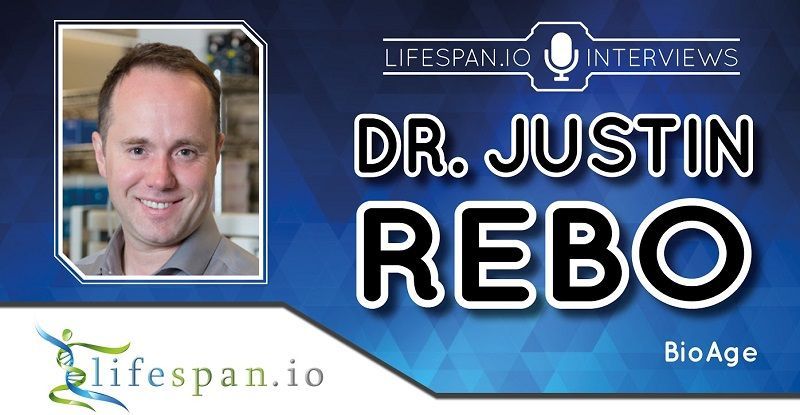Steven Gundry, MD, author of The Longevity Paradox: How to Die Young at a Ripe Old Age, explains how he boosted patients’ lifespan and healthspan by combining conventional medicine with nutritional therapy.


Researchers are working to get to the bottom of longevity, unlocking the secrets to extending our lifespans well into our 100s… and beyond.
» Subscribe to Seeker! http://bit.ly/subscribeseeker
» Watch more How Close Are We | http://bit.ly/HCAWplaylist
» Follow Olivia on Instagram: instagram.com/OliviaPavcoG
Harvard Professor David Sinclair thinks longevity, or extending our lifespan, is the “greatest unsolved problem in biology.”
The global life expectancy is currently hovering somewhere around 72 years old and women typically live longer than men and the age tends to be higher in developed countries and lower in impoverished nations.
Some experts argue that the tools we currently have when it comes to extending our lifespans are as simple as diet and exercise, but a healthy diet is only going to get you so far. So scientists are seeking out clues in the natural world that could help us side step growing old, some scientists even think that many of the ailments we refer to as diseases could be thought of as the symptoms of aging.
So, in addition to improving our nutrition, sleep, social life, access to health care, and so on, what else can we do to increase our chances of immortality?
Find out more on this episode of How Close Are We?
My mission is to drastically improve your life by helping you break bad habits, build and keep new healthy habits to make you the best version of yourself. I read the books and do all the research and share my findings with you!
This video is “Day 1” of RAADfest 2019 in Las Vegas. I discuss various products, companies & topics that are on display at RAADfest. I will do my best at RAADfest to interview longevity experts like James Strole, Bernadeane, Liz Parrish, Dr. Aubrey de Grey, Dr. Bill Andrews, Dr. Ed Park, Dr. Duncan Ross, Ben Goertzel, Bill Faloon and hopefully many more. I’ll bring you all the major updates from RAADfest!
I’ll be sharing daily RAADfest Roundups this week on my YouTube channel.
- Please consider a donation to me: My Bitcoin Cash (BCH) address: qr9gcfv92pzwfwa5hj9sqk3ptcnr5jss2g78n7w6f2 or https://paypal.me/BrentNally
- Forever Labs 1 year free cryogenic storage discount code ($250 value): BN801
- Forever Labs website: https://foreverlabs.com
- Instagram: https://instagram.com/brent.nally/ & @cryptotravelcouple @Mrs_Nally_
- Facebook: https://facebook.com/brent.nally
- LinkedIn: https://linkedin.com/in/brentnally
- Twitter: https://twitter.com/BrentNally
- Patreon: https://patreon.com/user?u=9451534

At the Ending Age-Related Diseases 2019 Conference in New York City, we had the opportunity to interview Dr. Justin Rebo from the drug discovery biotech company BioAge.
BioAge is developing a drug discovery platform that uses machine learning and artificial intelligence to discover targets that have the potential to promote healthy lifespan (healthspan) by slowing down aging and the ill health that it brings.
As the vice president of in-vivo biology at BioAge, Dr. Rebo leads the company’s internal in-vivo platform to find and assess the viability of new druggable targets for aging diseases and biomedical regeneration. With considerable business as well as academic experience in the aging field under his belt, Justin joined the BioAge team in 2018.
A year old, and this video is titled with the “I-word”. But a very interesting talk.
It’s not every day that I get to post a video where I feel like I’m involved with something that may seriously improve and extend lives. I’m so grateful that somehow, I was brought into this process.
The ForbiddenKnowledgeTV newsletter and website attract a large number of physicians and health-practitioner subscribers and it’s been a real joy to make friends with the doctors on my list over the years. One leading physician who first contacted me, way back in August 2011 was Dr. Ron Klatz, Founder-President of the American Academy of Anti-Aging and Regenerative Medicine (A4M).
Last week, he asked me to edit this video of the first round table discussion of the American Association of Stem Cell Physicians, which had been live-streamed on August 11th and which he’d helped to moderate. It was shot completely unstaged and it was very rough-and-tumble and it needed a little cleaning-up. I said sure, without fully realizing what a treat I was in for, with this incredibly dynamic and inspiring group of scientists and physicians; who don’t normally speak to each other – let alone on camera – in a totally live, unscripted setting!
In 1996, Dr. Klatz and the A4M predicted that medical advancements were on pace to achieve life expectancies of 120 years or more, or what they call “Practical Immortality” by 2029. With the latest developments in stem cell technology and nutritional medicine, among others, this prediction is well on track.
The Healthy Life Extension Society: https://heales.org
Follow us on Twitter : https://twitter.com/_LongLongLife_
Follow us on Facebook : https://www.facebook.com/longlonglifedotorg/
Follow us on Linkedin : https://www.linkedin.com/company/22311577
Our Website : http://www.longlonglife.org
The Eurosymposium on Healthy Ageing (EHA) meeting for 3 days in Brussels proclaims the possibility and the imperative of a moonshot project to overcome all age-related diseases within 25 years by tackling aging as their root cause.
The world has already faced the variety of challenges caused by an ageing population and the so called “Silver tsunami”, but Following major discoveries in science and biomedicine in recent years we are now on the edge of a paradigm shift from treatment to prevention and an improvement in healthy longevity. The defeat of aging lies within our collective grasp. It’s time to seize this remarkable opportunity!
Day 2
Rejuvenation strategies
Aubrey de Grey

The idea that humans should merge with AI is very much in the air these days. It is offered both as a way for humans to avoid being outmoded by AI in the workplace, and as a path to superintelligence and immortality. For instance, Elon Musk recently commented that humans can escape being outmoded by AI by “having some sort of merger of biological intelligence and machine intelligence.”1 To this end, he’s founded a company, Neuralink. One of its first aims is to develop “neural lace,” an injectable mesh that connects the brain directly to computers. Neural lace and other AI-based enhancements are supposed to allow data from your brain to travel wirelessly to one’s digital devices or to the cloud, where massive computing power is available.
For many transhumanists, uploading is key to the mind-machine merger.
Perhaps these sorts of enhancements will turn out to be beneficial, but to see if this is the case, we will need to move beyond all the hype. Policymakers, the public, and even AI researchers themselves need a better idea of what is at stake. For instance, if AI cannot be conscious, then if you substituted a microchip for the parts of the brain responsible for consciousness, you would end your life as a conscious being. You’d become what philosophers call a “zombie”—a nonconscious simulacrum of your earlier self. Further, even ifmicrochips could replace parts of the brain responsible for consciousness without zombifying you, radical enhancement is still a major risk. After too many changes, the person who remains may not even be you. Each human who enhances may, unbeknownst to them, end their life in the process.
Should we stop this whole life extension thing while we still can in order to prevent this potential problem? Yeah… no. Here’s why.
New interview with author and researcher Dr. Josh Mitteldorf who runs the aging research blog Aging Matters.
Interview with author and researcher Dr. Josh Mitteldorf who runs the aging research blog ‘Aging Matters’.
Dr. Josh Mitteldorf is an evolutionary biologist and a long-time contributor to the growing field of aging science. His work in this field has focused on theories of aging. He asks the basic question: why do we age and die?
Josh is the co-author of ‘Cracking the Aging Code: The New Science of Growing Old — And What It Means for Staying Young’ : “A revolutionary examination of why we age, what it means for our health, and how we just might be able to fight it.
In Cracking the Aging Code, theoretical biologist Josh Mitteldorf and award-winning writer and ecological philosopher Dorion Sagan reveal that evolution and aging are even more complex and breathtaking than we originally thought. Using meticulous multidisciplinary science, as well as reviewing the history of our understanding about evolution, this book makes the case that aging is not something that “just happens,” nor is it the result of wear and tear or a genetic inevitability. Rather, aging has a fascinating evolutionary purpose: to stabilize populations and ecosystems, which are ever-threatened by cyclic swings that can lead to extinction.
When a population grows too fast it can put itself at risk of a wholesale wipeout. Aging has evolved to help us adjust our growth in a sustainable fashion as well as prevent an ecological crisis from starvation, predation, pollution, or infection.